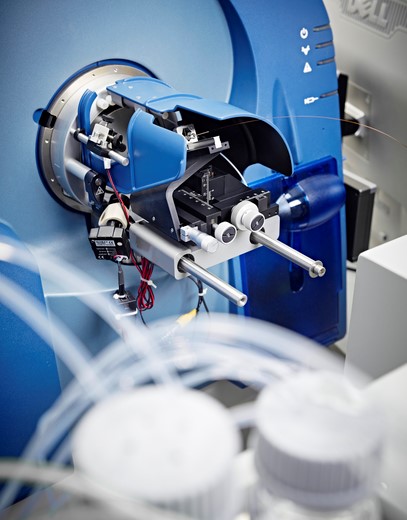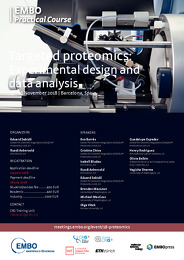About the Practical Course

Different targeted proteomics strategies have recently emerged in the field of proteomics that enable the detection and quantification of a predetermined subset of proteins with a high degree of sensitivity and reproducibility across many samples. This EMBO Practical Course aims to fill in the gap between theory and the actual implementation of the targeted proteomics workflow, so that by the end of the week the students have the necessary know-how to implement the targeted proteomics workflows in their own research laboratories. The course will offer a daily keynote talk by a high-profile speaker introducing the topic of the day with examples of his/her own research, followed by "Practical demonstrations" (20%), and "Practical work and exercises" (40%) that will cover the complete workflow for experimental design and data analysis of targeted proteomics assays (i.e. targeted method design, optimization of instrument settings, manual and automated quantitative analysis, and statistical analysis of the data). Moreover, these sessions will be followed by "Poster Sessions" (10%) and "Social Events" to introduce informal discussion tables to adapt the technology to each participant's particular interests.
About EMBO Courses and Workshops
EMBO Courses and Workshops are selected for their excellent scientific quality and timelines, provision of good networking activities for all participants and speaker gender diversity (at least 40% of speakers must be from the underrepresented gender).
Organisers are encouraged to implement measures to make the meeting environmentally more sustainable.




